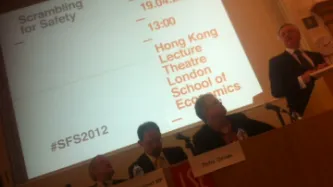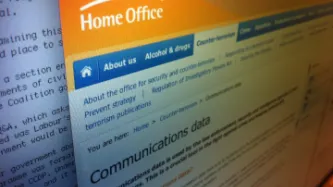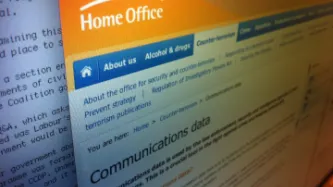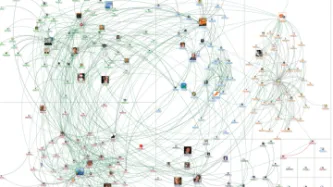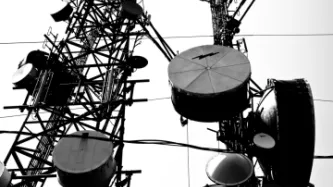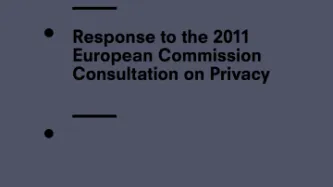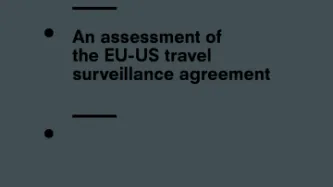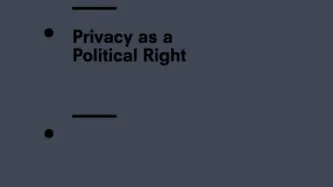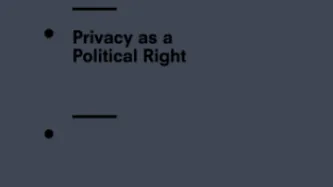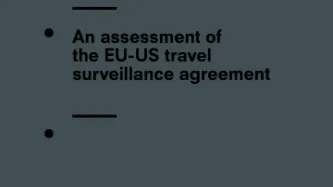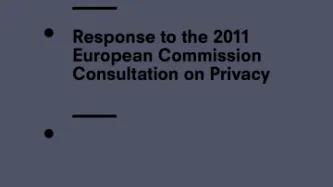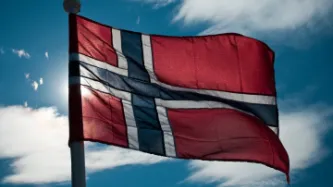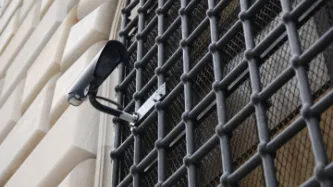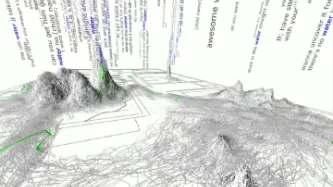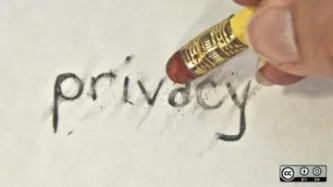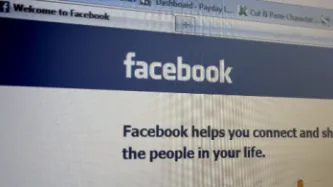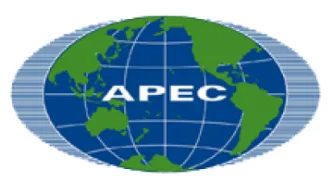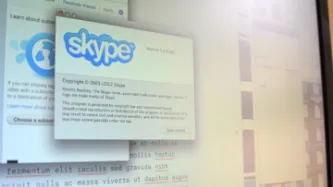Search
Content type: News & Analysis
On Thursday 19th April, Privacy International - in partnership with the LSE, the Foundation for Information Policy Research, Open Rights Group and Big Brother Watch - hosted Scrambling for Safety 2012, a discussion of the Home Office's new plans for mass interception in the UK. Around 200 people turned up (despite the sporadic but torrential rain!), and the number of insightful, well-informed questions from the audience proved to us that the Home Office is not going to…
Content type: News & Analysis
It is an increasingly common tactic of governments to say very little about a proposed policy, wait for opponents to start speaking publicly about it and then seize gleefully upon any error, accusing their opponents of peddling 'myths'. This allows officials to spend more time talking about what the policy isn't, and less time explaining what the policy actually is.
One recent example of this has been the Home Office's approach to its policy for 'modernising' communications surveillance. …
Content type: News & Analysis
In September last year, David Cameron told the UN general assembly: "As people in north Africa and the Middle East stand up and give voice to their hopes for more open and democratic societies, we have an opportunity – and I would say a responsibility – to help them." The Arab Spring uprisings had provided a chink of light for those living under repressive regimes, and it was now up to western democracies to help them throw open the door to a bright new future.
Yet over the past six…
Content type: News & Analysis
What do we know?
Very little. The Communication Capabilities Development Programme (CCDP) is going to be included the Queen's Speech next month and we still haven't had public confirmation of the details. What we do know is that there have been secret briefings to MPs designed to scare them into compliance, and secret briefings to industry that were originally designed to calm their fears (but in fact have only served to increase their outrage).
What was previously proposed?
In 2009 the Home…
Content type: Press release
An internal Liberal Democrat briefing on Home Office plans to massively expand government surveillance was today passed to Privacy International. The document contains significant evasions and distortions about the proposed 'Communications Capabilities Development Programme' (CCDP), and is clearly intended to persuade unconvinced Lib Dem MPs to vote in favour of the proposal.
The document contains a section entitled 'Remember, under Labour' consisting of a list of the previous government's…
Content type: News & Analysis
For the past 18 months, I've been investigating the export of surveillance technologies from Western countries to despotic regimes, but I never thought I'd see a democratic government proposing to install the kind of mass surveillance system favoured by Al-Assad, Mubarak and Gaddafi. Yet the Home Office's latest plans would allow the authorities unprecedented levels of access to the entire population's phone records, emails, browsing history and activity on social networking sites,…
Content type: News & Analysis
People often ask me why I investigate the surveillance trade - surely the police and intelligence services need these technologies to prevent serious crime and terrorism? I tell them that I completely agree - targeted surveillance, conducted within strict legal frameworks, can be a socially useful tool. However, vast swathes of the industry are in a different business altogether: mass surveillance.
Mass surveillance is when the state conducts pervasive blanket surveillance of entire…
Content type: Report
Following on from their 2009 discussion paper, in 2010 the European Commission published a Communication on changes to the 1995 European Union Directive on data protection. The European Union’s 1995 Directive on data protection is a leading regional instrument for privacy and is often the model for other countries across the globe. The Directive has been integral to pushing back against key surveillance and tracking initiaitives by governments and industry.In this report we respond to that…
Content type: Report
The US does not have a general overarching privacy law like European Data Directive or the sweeping privacy protections contained in the European declarations of rights. The EU-US accord cites several laws, which it claims, give privacy rights to non-US persons. None of the cited laws offer any real substantive or procedural protections for Europeans. As explained below, the one law – the Privacy Act 5 U.S.C 552a – that could offer some modest protections is tellingly not even mentioned.
But…
Content type: Report
When we think of privacy in the political system we tend to recall historic events
like Watergate, secret files held by governments in war-time, and blacklists. Modern political surveillance is more advanced and sophisticated. In this report we identify some of the modern political surveillance initiatives by governments around the world. We must recognise that all political systems require privacy to function, and devise our policies and build our technologies accordingly.
Content type: Report
When we think of privacy in the political system we tend to recall historic events like Watergate, secret files held by governments in war-time, and blacklists. Modern political surveillance is more advanced and sophisticated. In this report we identify some of the modern political surveillance initiatives by governments around the world. We must recognise that all political systems require privacy to function, and devise our policies and build our technologies accordingly.
Content type: Report
This is a memo prepared by Barry Steinhardt of Friends of Privacy USA for Members of the European Parliament regarding the proposed EU-US Agreement PNR.
The proposed agreement regarding Passenger Name Records (PNR) between the United States and the European Union is riddled with faulty assertions and assumptions about US law and the actual operations of the US government.
These faulty assertions and assumptions go to the heart of the agreement and undercut the claims of protections for…
Content type: Report
Following on from their 2009 discussion paper, in 2010 the European Commission published a Communication on changes to the 1995 European Union Directive on data protection. The European Union’s 1995 Directive on data protection is a leading regional instrument for privacy and is often the model for other countries across the globe. The Directive has been integral to pushing back against key surveillance and tracking initiaitives by governments and industry.
In this report we respond to that…
Content type: News & Analysis
PI spent the first half of February in Asia, visiting our regional partners and speaking at events. Our trip began in Delhi, where the Centre for Internet and Society (in collaboration with the Society in Action Group) had organized two consecutive privacy conferences – an invite-only conclave on Friday 3rd February and a free symposium open to the public on Saturday 4th February. The conclave consisted of two panels, the first focusing on the relationship between national security…
Content type: News & Analysis
Earlier this week it was announced that UK-based Datasift would start offering their customers the ability to mine Twitter’s past two years of tweets for market research purposes. The licensing fees will add another revenue stream to Twitter's portfolio - but at what cost to the company's reputation? Twitter, once the darling of the privacy world, seems to have lost its way.
Datasift don't believe that there are any privacy implications to their new service. In fact, they didn't…
Content type: Press release
The Council of the European Union today reinforced restrictive measures on EU exports to Iran, banning "exports of equipment and software intended for use in the monitoring or interception of internet and telephone communications by the Iranian authorities".
The Council also added 17 people responsible for grave human rights violations to the list of those subject to a travel ban and asset freeze. An existing ban on equipment for use in internal repression was transferred from the sanctions…
Content type: Press release
In an advertisement placed in national newspapers yesterday (23rd February), the National ICT R&D Fund of Pakistan (which operates under the auspices of the Ministry of Information Technology) requested proposals for "the development, deployment and operation of a national level URL Filtering and Blocking System". Further information provided on the Fund's website stated:
"Internet access in Pakistan is mostly unrestricted and unfiltered...Many countries have deployed web…
Content type: News & Analysis
Inspired by the Europe v Facebook campaign and further motivated by revelations that individuals associated with WikiLeaks and the Occupy movements in Boston and New York have had their Twitter data disclosed to American law enforcement authorities, Privacy International is launching a campaign to encourage European data subjects to get access to the personal information that Twitter holds on them.
Our campaign aims to achieve two objectives: to help European citizens exercise their rights and…
Content type: News & Analysis
An astonishing 13-page investigation by Osman Kibar at Dagens Næringsliv has revealed that Norway has invested over $2 billion in 15 companies that manufacture and sell surveillance technologies - and that the government has no plans to divest investments in companies that are complicit in human rights abuses abroad.
The Norwegian national pension fund (commonly referred to as the "oil fund") is the world's largest sovereign wealth fund. The author of the Dagens Næringsliv…
Content type: Press release
In collaboration with the Wall Street Journal and the Guardian, Privacy International today published a database of all attendees at six ISS World surveillance trade shows, held in Washington DC, Dubai and Prague between 2006 and 2009. ISS World is the biggest of the surveillance industry conferences, and attendance costs up to $1,295 per guest. Hundreds of attendees are listed, ranging from the Tucson Police Department, to the government of Pakistan, to the International…
Content type: News & Analysis
It is common knowledge that surveillance technologies keep us safe. These technologies can uncover where a would-be bomber has fled or reveal that a suspect is planning an attack on the New York City subways. Such successes, and the belief - and business - in them has fueled a vast expansion of CCTV, wiretapping and data mining since 9/11, the Madrid bombings in 2004 and the attacks on London's public transport system in 2005. But this common knowledge is based, at best, on shaky evidence. In…
Content type: News & Analysis
Gradually and almost imperceptibly, we have immersed ourselves in a global hypermedia environment. This environment increasingly contains everything we do: we work, we play, we organize within it. Our lives have been, in essence, turned inside out and dispersed in endless ethereal clouds - multi-verses - that follow us around in extra dimensionality. “Big Data” refers to the endless digital grains of sand we produce as we move, think and act. Internet Service Providers, web hosting companies,…
Content type: News & Analysis
Last year, Index on Censorship published an interview with Google’s chief legal officer and senior vice president David Drummond. The company was still reeling from the aftermath of the news that an attack had been launched on Gmail from China. Drummond proposed that free speech needed to be part of the international agenda at multilateral and bilateral trade discussions, just like piracy. 'Western governments whose economies certainly benefit from the internet sector should make this happen,'…
Content type: News & Analysis
This is a Guest Blog from Mathias Vermeulen is a Research Fellow at the European University Institute and the VUB's Centre for Law, Science and Technology Studies.
In 1999, a young technology company called Google was brainstorming a mission statement for the corporation. A series of core principles were written on a blackboard, until one employee summarized them as ‘Don’t be evil’. The slogan became a rallying cry for Google’s fans, and a way to distinguish it from other companies, but…
Content type: Press release
At 12.45pm today, Wikileaks released hundreds of brochures, presentations, marketing videos and technical specifications exposing the inner workings of the international trade in surveillance technologies. Many of these documents were gathered by PI’s Eric King while undercover at industry-only conferences and trade shows in London, Paris and Washington DC.
Mr King joined Julian Assange, security researcher Jacob Appelbaum, Stefania Maurizi of Italian news weekly L’Espresso, Jean-Marc Manach…
Content type: News & Analysis
Facebook's new "Download your Information" feature reveals a radically different interpretation of transparency to one that the rest of us in Europe might hold. The feature may be a promising start, but the company still clearly has difficulty understanding the requirements of European Data Protection law. The feature provides only a fraction of the personal information held by Facebook and is thus still in violation of law.
The company may escape a prosecution under the UK Trades Description…
Content type: News & Analysis
The second 2011 meeting of the APEC Privacy Subgroup took place in San Francisco in mid September, and finalised the package of documents that comprise the Cross Border Privacy Rules (CBPR) system. Endorsed by the parent Electronic Commerce Steering Group (ECSG), these will now go forward for ratification by Ministers in Hawaii in November, and subsequent implementation. The Subgroup’s 2012 Work Plan envisages establishment of the Joint Oversight Panel (JoP), commencement of…
Content type: News & Analysis
Few understand why we focus on refugee privacy. Funders don’t understand it so don’t fund it; the public see the plight of refugees as seen on TV, not as a privacy issue; and often times the international community does everything it can to increase scrutiny of refugees. In this blog, I highlight the privacy issues facing refugees and how these issues can jeopardize refugees’ safety as much as any of the environmental, social, or political risks refugees encounter.
Refugees are amongst…
Content type: News & Analysis
An international alliance of organisations and individuals from 27 countries has lodged a petition calling on the Council of Europe to start an indepth survey on the collection and storage of biometric data by member states.
European governments are increasingly demanding storage of biometric data (fingerprints and facial scans) from individuals. These include storage on contactless 'RFID' chips in passports and/or ID cards. Some are going even further by implementing…
Content type: News & Analysis
Skype has consistently assured that it protects its users and their communications. Having reviewed the company's technology and policies we have grounds for concern about Skype's overall level of security, and we believe there are a number of questions to which the company must respond. Skype's misleading security assurances continue to expose users around the world to unnecessary and dangerous risk. It's time for Skype to own up to the reality of its security and to take a leadership…
